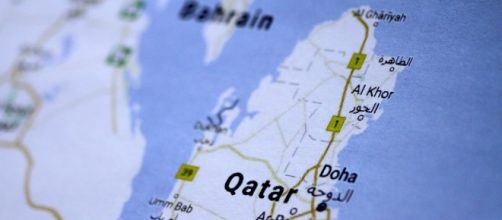Immediately after the U.S. signs a massive arms deal with Saudi Arabia, Riyadh, along with UAE and Bahrain have finally cut ties with Qatar. This is a major problem for the United States as it is in the process of finalizing an arms deal in Qatar. The sudden diplomatic breakdown is a major setback for Trump's plans of curtailing Iran's influence as the U.S. military uses one of Qatar's airports as its base in the Persian Gulf.
Why did Saudi Arabia cut ties with Qatar?
The main reason for Saudi's decision to cut ties is the apparent weak anti-terrorism policy of the Qatari government.
Riyadh reported that Qatar is allowing terrorist groups like ISIS and the Muslim brotherhood to thrive and increase in number.
Many neighboring countries saw Riyadh's actions as drastic, however, the Saudi government has enough reasons to basically embargo Qatar. These reasons include actual reports of groups like the Taliban having a recruitment office in the Doha.
The stringent reaction of the Saudi government is also caused by its ongoing war against Yemen, which is now governed by a radical group called the Houthis. Doha also is reported to allow Houthis access in their territory. Now that Saudi has the arms and the support of the United States, it is just a matter of time when it become a major power state in the Middle East.
How will the Saudi-Qatar rift affect the United States?
The U.S. Military has pending deals with the Qatari government especially on the sales of arms in exchange for its cooperation on America's fight against terrorism in Iraq. An example of these deals is the proposed sales of F-15 fighters that will be used to boost Qatar's air force to combat Iran's air power.
U.S. President Trump had visited Saudi Arabia to form ties with the country and establish a coalition against terrorists and Iran. However, the deal didn't foresaw the action of Saudi Arabia to drastically cut off ties with Qatar. It is uncertain how will the U.S. adapt to this political issue in the Middle East, especially as it begins its offensive against ISIS territories in Syria.
However, in a surprising turn of events, Trump took the credit as the person who caused the rift between Saudi and Qatar.
During my recent trip to the Middle East I stated that there can no longer be funding of Radical Ideology. Leaders pointed to Qatar - look!
— Donald J. Trump (@realDonaldTrump) June 6, 2017
The tweet resulted in a number of replies that object and even ridicule Trump's foreign policy in the Middle East. At the moment, the future of Qatar is still uncertain as Saudi Arabia slowly tightens the noose on this small oil-rich country.


